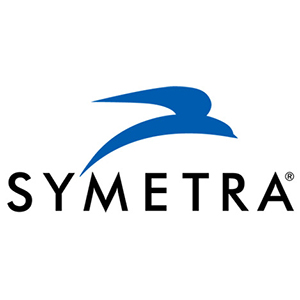Bank-owned life insurance (BOLI) continues to be a vital financial tool for banks of all sizes in 2025. With the U.S. banking sector facing multiple challenges, from regulatory changes to rising benefit costs, BOLI offers a stable, tax-advantaged asset that helps banks manage both risk and employee benefits more effectively.
Table of Contents
- What Is Bank-Owned Life Insurance?
- How BOLI Works
- How BOLI Is Structured
- Tax Advantages of BOLI
- Strategic Uses of BOLI
- 2025 BOLI Trends and Data
- Regulatory and Compliance Updates
- Pros and Cons of BOLI
- Next Steps for Banks Considering BOLI
What Is Bank-Owned Life Insurance?
Bank-owned life insurance (BOLI) is life insurance purchased and owned by banks. With the exception of term policies occasionally used to cover a borrower while a large debt remains outstanding, bank-owned policies are usually permanent life insurance, like whole or universal life.
The permanent policies accrue cash value, which earns tax-advantaged interest at competitive rates, and the wealth stored within a BOLI policy counts as an asset on the bank’s books.
Key BOLI Facts
- The bank is both the owner and beneficiary of the policy
- Policies typically cover executives and key employees (with their consent)
- Cash value grows tax-deferred
- Death benefits are generally tax-free
- Primarily used to fund employee benefits in a tax-efficient manner
How BOLI Works
BOLI is a permanent life insurance policy purchased by a bank on the lives of key employees. The primary purposes are to:
- Fund employee benefits in a tax-efficient manner
- Manage risk associated with the loss of key personnel
- Generate stable, tax-advantaged returns to support the bank’s financial health
Banks pay the premiums, and the policy’s cash value grows tax-deferred. Upon the insured’s death, the bank receives a generally tax-free death benefit, which can be used to offset employee benefit costs or other financial needs.
Benefits of Life Insurance to a Bank
Life insurance policies can serve a wide range of important functions for a bank.
For example, a key person insurance policy covering a vital executive may be intended to protect the bank from the transition costs it will likely incur when recruiting and training a replacement.
Or, life insurance might insure against the risk of a borrower dying before repaying a large loan.
Deferred Compensation
A large number of banks have also implemented BOLI programs designed to fund and offset the administrative costs of long-term employee benefits and deferred compensation packages.
Though banks traditionally limited BOLI programs to highly compensated executives, the recent trend has been to extend BOLI coverage to a wider range of bank employees.
Because policies earn tax-advantaged growth, BOLI provides an excellent means of financing long-term obligations.
How BOLI Is Structured
When a bank acquires BOLI to finance long-term obligations, it will generally contract with one or more life insurance carriers for permanent policies covering key bank personnel.
With each BOLI policy issued, the bank is both the policyholder and the named beneficiary.
In most cases, the insureds (who must consent to the insurance) include directors, officers, executives, or other high-level employees.
Banks often purchase BOLI via a single premium or several annual premium payments over a few years, though policies are also available with premiums spread over a longer duration.
Like whole life insurance policies issued to individuals, BOLI policies pay out a death benefit when the insured person dies and have a steadily increasing cash surrender value.
Cash Value Growth
BOLI policies, though, are typically designed to place a greater emphasis on early strong cash value accrual.
For that reason, banks often favor universal life over whole life when acquiring BOLI.
As the policy ages, its cash value grows tax-deferred or tax-free—the former if realized through a surrender or partial withdrawal, the latter if received via the policy’s death benefit.
Because BOLI policies are designed to emphasize cash-value growth, earnings usually outperform comparable assets that a large institution might acquire to finance long-term obligations.
General Account vs Separate Account
Determination of cash-value growth rates depends on whether BOLI is “general account” or “separate account.”
With general account BOLI, policy funds are held within the insurer’s general account. Interest rates credited vary according to performance of the insurer’s investments, though usually subject to a minimum return rate.
Separate account BOLI funds are held apart from the insurer’s general holdings and invested by an outside fund manager.
The bank has a say in the general nature of investments but can’t control individual allocations.
Earnings are based on investment performance, and the risk of loss is borne by the policyholder bank—though riders and corollary financial products are available to mitigate downside risk.
Non-taxed growth earned by BOLI is used by banks as a funding source for the administration and overhead costs associated with employee benefits and compensation plans.
In some cases, banks will provide covered employees an interest in the value of a BOLI policy as part of the employee’s compensation package.
Trust Account
Frequently, banks use a trust account to administer their BOLI programs.
The bank pays into the trust to cover the premium cost, BOLI proceeds are placed in the account, and employee benefits and deferred compensation are paid out from the funds.
Tax Advantages of BOLI
As cash value accrues, BOLI policy growth is subject to neither current capital gains nor business income tax.
Returns continue growing and compounding year after year without any reduction for taxes, which significantly adds to the growth-potential advantage BOLI enjoys over comparable long-term, low-risk investments available to banks.
Though untaxed, policy growth nonetheless appears on the bank’s balance sheet as it is earned.
Death Benefit Payout
When an insured employee dies, the life insurance carrier pays out the death benefit to the bank.
Because policy proceeds are received as a life insurance payout, the bank does not incur any tax liability on the funds, including funds attributable to growth.
Potential Downside
A downside of BOLI is that, if wealth held in a policy is accessed through a cash value surrender or partial withdrawal, funds attributable to growth qualify as taxable income to the bank.
The tax is assessed on the growth at the regular rate, plus an additional ten percent penalty.
Due to the significant tax hit involved with a cash surrender, BOLI is generally considered an illiquid asset, though most BOLI policies do not include surrender fees charged by the insurance carrier.
Strategic Uses of BOLI
Primary Strategic Uses
- Employee Benefit Funding: BOLI is primarily used to informally fund employee benefit obligations, especially for executives and highly compensated staff
- Risk Management: BOLI helps mitigate the financial impact of losing key employees and can provide liquidity for succession planning
- Portfolio Optimization: BOLI diversifies a bank’s investment portfolio with tax-advantaged returns
Banks can strategically use BOLI in several ways to strengthen their financial position and better serve employee needs:
Employee Benefit Funding
The most common use of BOLI is to fund employee benefit programs, particularly:
- Retiree health benefits
- Nonqualified deferred compensation plans
- Supplemental executive retirement plans (SERPs)
- Group term life insurance costs
Some banks share a portion of the death benefit with the insured’s family, but the bank is always the primary beneficiary.
Risk Management
BOLI serves as a risk management tool by:
- Providing financial protection against the loss of key employees
- Creating liquidity for succession planning
- Stabilizing earnings through non-interest income
Portfolio Optimization
With high interest rates in 2024-2025, many banks are reviewing and restructuring their BOLI portfolios using:
- 1035 exchanges to transition to higher-yielding policies
- Surrender/redeploy strategies to improve performance and risk characteristics
- Diversification across multiple carriers to reduce credit risk
BOLI Trends and Data
The BOLI landscape continues to evolve in 2025, with several notable trends shaping how banks use this financial tool:
Resilience Amid Banking Turbulence
Despite recent bank failures and regulatory scrutiny, BOLI remains a resilient and attractive asset for banks. New BOLI yields in 2024-2025 have reached 15- to 20-year highs, making BOLI especially appealing in the current high-interest-rate environment.
Tax Efficiency and Investment Potential
BOLI continues to offer tax-deferred cash value growth and tax-free death benefits, often outperforming after-tax returns of traditional bank investments. This tax efficiency has become increasingly important as banks seek to maximize returns in a competitive environment.
Offsetting Rising Employee Benefit Costs
With labor shortages and rising benefit expenses, community and regional banks are increasingly using BOLI to fund retiree health benefits, nonqualified deferred compensation, and supplemental executive retirement plans.
Regulatory Endorsement and Oversight
Federal banking agencies (OCC, FDIC, Federal Reserve) continue to recognize BOLI as a permissible long-term asset, provided banks follow robust risk management and governance practices.
Regulatory and Compliance Updates
Concentration Limits
Regulators generally recommend that BOLI not exceed 25% of Tier 1 capital, though this may vary by institution size and risk appetite. Banks must conduct annual (or more frequent) reviews to ensure compliance and performance.
Governance Requirements
Strong board oversight, documented policies, and regular reporting are essential. Many banks use third-party administrators for compliance and policy management, but ultimate responsibility remains with the board.
Upcoming Regulatory Changes
The Basel III Endgame and potential changes to noncompete agreements may impact how banks use BOLI for executive retention and compensation planning. The Tax Cuts and Jobs Act of 2017 continues to influence benefit funding strategies.
Pros and Cons of BOLI
| Pros | Cons |
|---|---|
| Tax-deferred cash value growth | Illiquidity and potential surrender charges |
| Tax-free death benefits | Regulatory complexity and compliance burden |
| Offsets employee benefit costs | Interest rate sensitivity |
| Stable, non-interest income | Carrier credit risk |
| Diversifies bank investment portfolio | Opportunity cost vs. other investments |
Next Steps for Banks Considering BOLI
If you’re a banking professional exploring BOLI as a potential asset for your institution, consider these important next steps:
- Conduct a comprehensive analysis of your bank’s employee benefit liabilities and funding needs
- Review your existing investment portfolio to determine how BOLI might complement your current assets
- Consult with specialized BOLI advisors who understand both insurance and banking regulations
- Develop a clear BOLI investment policy that addresses risk parameters, carrier selection, and monitoring requirements
- Ensure your board understands the long-term nature and strategic purpose of BOLI investments
Expert BOLI Guidance for Your Bank
Navigating the complexities of Bank-Owned Life Insurance requires specialized expertise. Our independent advisory team can help your institution:
- ✓ Evaluate BOLI’s potential impact on your bank’s financials and employee benefit programs
- ✓ Compare BOLI options from top-rated carriers with the strongest financial ratings
- ✓ Design a BOLI program that aligns with your specific regulatory requirements and risk parameters
- ✓ Implement robust governance and monitoring processes to ensure ongoing compliance
Schedule your complimentary 30-minute BOLI strategy consultation today and discover how this powerful financial tool can strengthen your bank’s balance sheet.
No obligation. No sales pressure. Just expert guidance to help you determine if BOLI aligns with your bank’s long-term financial strategy.






2 comments
THELONIOUS M AKINS
Do you have any insurance company you can recommend ?
Insurance&Estates
Hello and thanks for connecting. There are a number of good mutual companies to consider which vary based upon your goals and circumstances. A great first step is to connect with an expert to discuss your specific needs and you can do this by mailing barry@insuranceandestates.com to request a call.
Best, Steve Gibbs for I&E